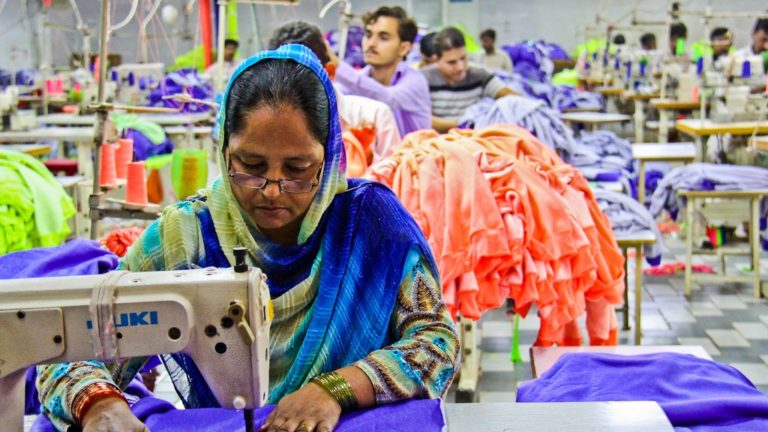
The OECD wants companies to take responsibility for the entire production chain. Photo: USAID Pakistan
Of: Agnes Duregård
The OECD has developed special guidelines for multinational companies to make companies take responsibility for their entire supply chain. Multinational companies must both work preventively and take responsibility for the consequences the business may have in low- and middle-income countries.
May 3, 2018, FUF-correspondents
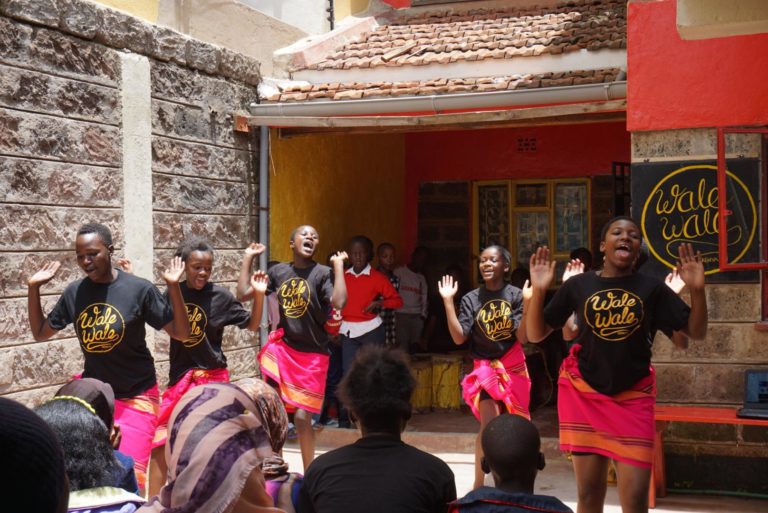
Developing in dance creates self-confidence and an identity. Photo: Emma Gidlund.
Of: Kajsa Litton Fredriksson
With tough home conditions, music becomes a safe zone and an opportunity to develop. At the organization Wale Wale Kenya, young people from the slums gather to dance together. Project leader Vennah Atieno talks about how creativity makes young people grow, and about society's sometimes skeptical view of dance.
May 3, 2018, FUF-correspondents
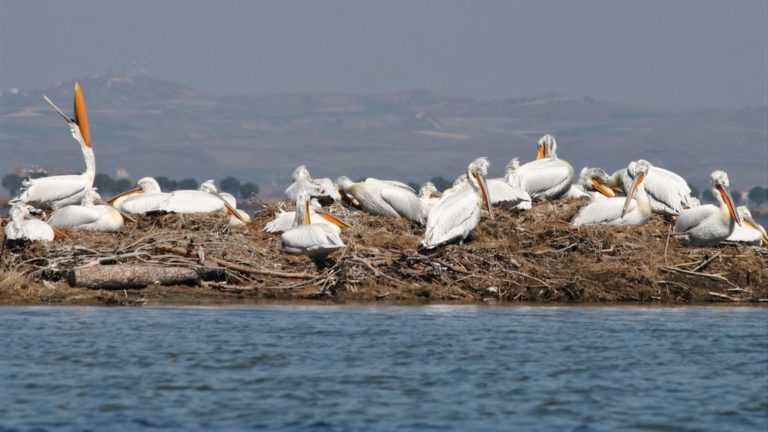
The mallard is one of the bird species that nests in the national park. According to the International Union for Conservation of Nature (IUCN), the species is "near endangered" globally. Photo: Embassy of Sweden in Tirana, Albania.
Of: Sebastian brandt
In the middle of a national park in Albania, the construction of a huge tourist complex has been proposed. However, the proposal has not been well received by everyone in the country. Several environmental organizations have protested against the enormous impact such a construction would have on the environment, wildlife and local residents.
May 3, 2018, FUF-correspondents
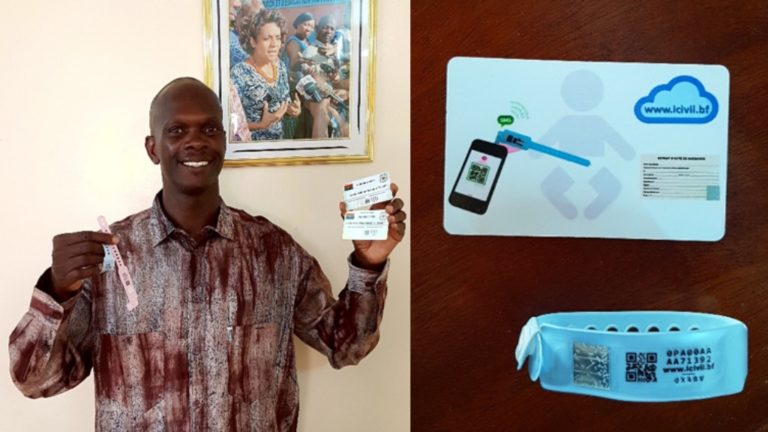
Adama Sawadogo, founder of the startup company iCivil, proudly shows off her bracelets. They have a unique, non-copyable bubble code, a QR code for social security numbers. Photo: Linn Jansson.
Of: Lynn Jansson
In the eyes of the state, they do not exist - the 230 million children who today have no legal existence worldwide. This is despite the fact that the right to citizenship and personal identity is included in the UN Declaration of Human Rights and is pursued through sub-goals in Agenda 2030. The start-up company iCivil has developed a technical solution that can help solve the problem.
May 3, 2018, FUF-correspondents
Of: Stina Olausson
On August 28, 2017, one of the world's toughest laws came into force against the buying, selling and manufacturing of plastic bags. With up to four years in prison as a punishment and fines as high as 38 US dollars, in a country where a monthly salary between 000-100 dollars is not uncommon, Kenya shows that they […]
Read more »
May 3, 2018, FUF-correspondents
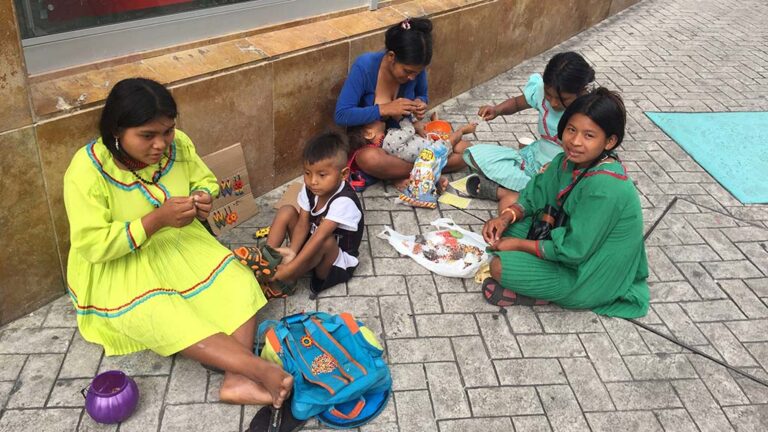
Photo: Patricia Johansson.
Of: Patricia Johansson
What caught my attention? The young people who juggled, danced in front of the traffic jams, washed car windows during the queue or the young women who sat on the street and made jewelery. I was in Ibague, a city in northwestern Colombia with nearly 500 inhabitants. Before my trip to Colombia, many people became curious, “Are you going to […]
Read more »
May 1, 2018, FUF-correspondents
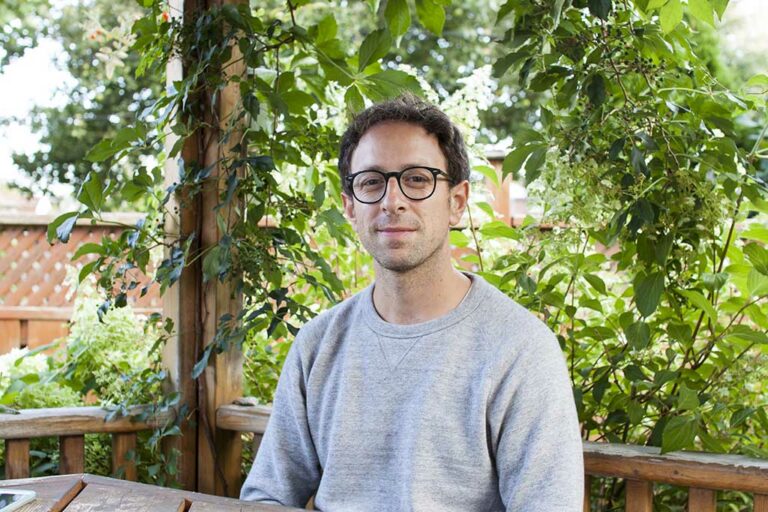
Joseph Shabason participates in the Canadian Integration Program to share the privileges he received from growing up in Canada. Photo: Anna Aigrot
Of: Anna Aigrot and Astrid Aigrot
In search of positive perspectives and ideas, at a time when the debate over refugee reception and integration is getting darker, we sought across the Atlantic to Canada to learn more about the country's "Privately Sponsored Refugees" (PSR) program. During two weeks in Canada, we met with representatives from government actors, activists and a total of 15 private sponsors. It […]
Read more »
March 28, 2018, FUF-correspondents
Of: Linnea Kronebrant
The Ecuadorian government pursues an aggressive extraction policy and mining concessions, permits to conduct mining activities, spread over large parts of the country. The new mines affect both indigenous territories and nature reserves - and at the same time the people who are fighting to preserve the vital water and forests are portrayed as "development opponents" and "mafia" by the state. Ecuador has already been hit by the […]
Read more »
February 27, 2018, FUF-correspondents
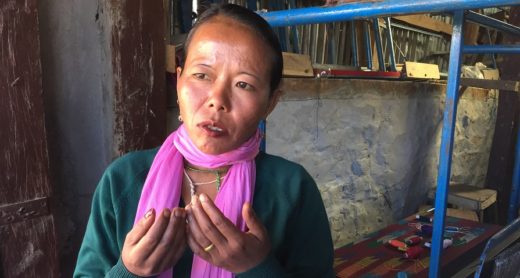
Anita Gurung. Photo: Nikolina Stålhand / IM
Of: Nikolina Stålhand
- I have gained increased respect and dignity in my family and in society, says Anita Gurung, chairman of a group of women who, with the support of IM, have started manufacturing traditional Dhaka products in Munchock, Gorkha.
December 12, 2017, FUF-correspondents
Of: Ebba Torén
For the first time in New Delhi, I will take the subway, a modern and well-functioning means of transport that breaks away from traditional bicycle rickshaws and cars. Once inside the station, I see in horror the long queue for the body scanner that I have to go through to be able to take part in my metro experience. Soon I am instead referred to the women's side. […]
Read more »
December 11, 2017, FUF-correspondents








